 | TODAY IN SCIENCE HISTORY NEWSLETTER - 25 APRIL |
| Feature for Today |
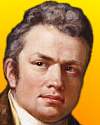 On 25 Apr 1769, Marc Isambard Brunel was born, the French-born English engineer and inventor who solved the historic problem of tunnelling through the water-bearing strata beneath a navigable waterway and built the Thames Tunnel. On 25 Apr 1769, Marc Isambard Brunel was born, the French-born English engineer and inventor who solved the historic problem of tunnelling through the water-bearing strata beneath a navigable waterway and built the Thames Tunnel.He invented a tunnelling shield to support the workface while digging it away. The task was arduous, with many problems to overcome, and took 18 years (with a 7-year hiatus). Yet he finally completed the world's first tunnel under a navigable river. It first opened, on 25 Mar 1843, as a pedestrian attraction because funds were not available to build the approach roads for its intended use for freight transfer across the Thames. However, it was adopted for use by the early underground railway. To this day it is the oldest tunnel under the Thames in the London underground network. The chapter in The Great Triumphs of Great Men (1875) titled Sir Mark Isambard Brunel is mostly a breath-taking description of the difficulties faced by the workers, as the Thames water irrupted into the tunnel on several occasions. Although Marc Brunel masterminded the construction of the tunnel, and made it possible with the invention of the tunneling shield, the triumph must be shared by all the great men at the workface. |
| Book of the Day | |
| |
| Quotations for Today | |
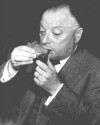 | "The fact that XY thinks slowly is not serious, but that he publishes faster than he thinks is inexcusable." |
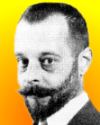 | "...on opening the incubator I experienced one of those rare moments of intense emotion which reward the research worker for all his pains: at first glance I saw that the broth culture, which the night before had been very turbid was perfectly clear: all the bacteria had vanished... as for my agar spread it was devoid of all growth and what caused my emotion was that in a flash I understood: what causes my spots was in fact an invisible microbe, a filterable virus, but a virus parasitic on bacteria. Another thought came to me also. If this is true, the same thing will have probably occurred in the sick man. In his intestine, as in my test-tube, the dysentery bacilli will have dissolved away under the action of their parasite. He should now be cured" |
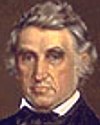 | "I submit a body of facts which cannot be invalidated. My opinions may be doubted, denied, or approved, according as they conflict or agree with the opinions of each individual who may read them; but their worth will be best determined by the foundation on which they rest—the incontrovertible facts." |
| QUIZ | |
| Before you look at today's web page, see if you can answer some of these questions about the events that happened on this day. Some of the names are very familiar. Others will likely stump you. Tickle your curiosity with these questions, then check your answers on today's web page. | |
| Births | |
 |  Wolfgang Pauli, born 25 Apr 1900 was awarded the Nobel Prize for Physics in 1945 for his discovery (1925) of the condition that in an atom no two electrons can occupy the same quantum state simultaneously. He moved to the U.S. during WW II, where he became an American citizen, though a few years later took a teaching post in Europe. Wolfgang Pauli, born 25 Apr 1900 was awarded the Nobel Prize for Physics in 1945 for his discovery (1925) of the condition that in an atom no two electrons can occupy the same quantum state simultaneously. He moved to the U.S. during WW II, where he became an American citizen, though a few years later took a teaching post in Europe. In what country was Pauli born? In what country was Pauli born? |
 |  An Italian inventor, born 25 Apr 1874, investigated the "Hertzian Waves" (the radio waves Hertz first produced in his laboratory a few years earlier) leading to the creation of wireless telegraphy and what we now know as radio. An Italian inventor, born 25 Apr 1874, investigated the "Hertzian Waves" (the radio waves Hertz first produced in his laboratory a few years earlier) leading to the creation of wireless telegraphy and what we now know as radio. Can you name this inventor? Can you name this inventor? |
| Deaths | |
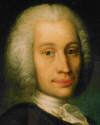 |  Anders Celsius (1701- 1744) was a Swedish astronomer, physicist and mathematician who is famous for the temperature scale he developed. He and his assistant Olof Hiortner discovered an effect that was associated with the aurora borealis. Anders Celsius (1701- 1744) was a Swedish astronomer, physicist and mathematician who is famous for the temperature scale he developed. He and his assistant Olof Hiortner discovered an effect that was associated with the aurora borealis. What was the effect Celcius discovered associated with the aurora borealis? What was the effect Celcius discovered associated with the aurora borealis? |
| Events | |
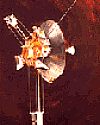 |  On 25 Apr of a certain year, space probe Pioneer 10 crossed the orbit of Pluto, the outermost planet, to continue its voyage into the universe beyond our solar system. On 25 Apr of a certain year, space probe Pioneer 10 crossed the orbit of Pluto, the outermost planet, to continue its voyage into the universe beyond our solar system.  In which decade did Pioneer 10 cross the orbit of Pluto? In which decade did Pioneer 10 cross the orbit of Pluto? |
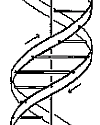 |  On 25 Apr of a cetain year, Nature journal published the structure of DNA, as suggested in a one-page article by James Watson and Francis Crick. This work earned the pair of scientists a Nobel Prize. On 25 Apr of a cetain year, Nature journal published the structure of DNA, as suggested in a one-page article by James Watson and Francis Crick. This work earned the pair of scientists a Nobel Prize.  In which decade was the DNA structure article published? In which decade was the DNA structure article published? |
| Answers |
When you have your answers ready to all the questions above, you'll find all the information to check them, and more, on the April 25 web page of Today in Science History. Or, try this link first for just the brief answers. Fast answers for the previous newsletter for April 24: Whooping crane; ytterbium; as a German, he experienced strong pressure including arrest and imprisonment from the Nazi government because Hitler had been enraged by the award of a Nobel Peace Prize to another German in a concentration camp; Tennessee; the decade including the year 1981. |
| Feedback |
 If you enjoy this newsletter, the website, or wish to offer encouragement or ideas, please send feedback by using your mail reader Reply button. If you enjoy this newsletter, the website, or wish to offer encouragement or ideas, please send feedback by using your mail reader Reply button. |
--
If you do not want to receive any more newsletters, this link
To update your preferences and to unsubscribe visit this link
If you do not want to receive any more newsletters, this link
To update your preferences and to unsubscribe visit this link
! !



Δεν υπάρχουν σχόλια:
Δημοσίευση σχολίου